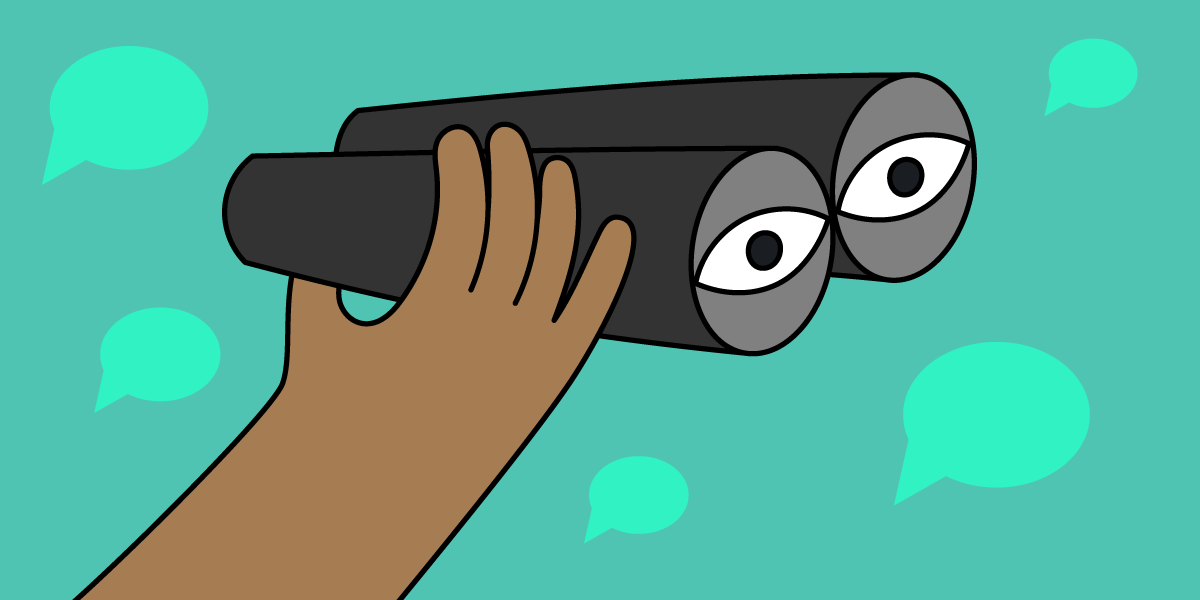
It’s one of the most commonly sought-after skills. You see it all the time on job-descriptions of every industry: Multitasking.
You might imagine an ultra-productive person sitting at a desk, likely with a couple of monitors. Slack, email, and multiple (ok, 20) internet browser tabs are open. This busy worker bee is effortlessly and simultaneously communicating with colleagues while doing her best work on multiple projects while juggling client meetings.
Personally, I think of Dwight’s Mega Desk from “The Office”—which seems ridiculous (but also sort of awesome):
But the truth? This idea of multitasking—that you can do multiple things well at the same time—is a lie.
A study by Stanford University found that trying to do too much at once can actually scramble your brain a bit: High-tech multitaskers were worse at organizing their thoughts and filtering out irrelevant information. They were also slower at switching between tasks compared to those who focused on one task at a time.
What interviewers really want to know when they ask about multitasking is “Can you manage multiple priorities efficiently?”
Rather than literally doing several things at once, the modern workplace demands quickly and strategically switching focus from one task to another—making sure each gets the attention it needs.
Navigating multitasking interview questions can be tricky. Let’s take a closer look at how you can articulate this skill effectively, using real-world examples.
What are multitasking skills in the workplace?
Multitasking skills tend to belong to one of these three buckets:
1. Task switching: This is the most common type of multitasking and involves shifting from one task to another. For example, you might switch between answering emails and preparing a presentation. It’s about changing focus quickly and smoothly.
2. Simultaneous task handling: Sometimes, tasks are equally urgent and important, requiring you to keep several plates spinning at once. These are typically tasks that go hand in hand. This could mean taking calls while entering data, or balancing client meetings while taking notes or Slacking a team member for a status update related to the client project.
3. Prioritizing quickly: At times, everything seems top-priority. Here, multitasking means quickly determining which tasks should be tackled first based on urgency and importance. This requires not just quick thinking, but also a deep understanding of what the business needs.
Why multitasking matters (and what interviewers are really asking)
Interview questions are all about getting to know you on a deeper level than your resume. Multitasking interview questions are no different. Your interviewer wants to know how you prioritize and handle the pressure of your workload. How you answer these questions will speak to your:
Adaptability: In the workplace, needs and priorities can shift quickly. Employers value employees who can adapt on the fly, demonstrating flexibility without losing momentum.
Efficiency: Being able to manage several tasks or projects at once, or move between them seamlessly, maximizes productivity. It’s about making the best use of your time and the company’s resources.
Ability to handle high volumes of work: In many roles, the ability to manage multiple projects and responsibilities is critical. Being adept at multitasking means you can keep up with the demands of the job without sacrificing quality.
Understanding these aspects of multitasking can not only help you articulate your skills in an interview but also refine them as you navigate your career path. Employers aren’t looking for superhumans; they’re looking for smart, strategic multitaskers who know when to switch gears and when to buckle down on a single task.
6 Interview questions (plus example answers) that reveal your multitasking abilities
1. Describe a time when you had to handle multiple projects at once.
What interviewers want to know: Interviewers want to gauge your ability to manage your time. They want to see evidence of your organizational skills, efficiency, and your ability to think strategically about work. They want to know how well you keep everything moving forward.
Employers are also interested in your decision-making process: How do you decide what gets priority? How do you ensure the quality of work doesn’t drop when the workload increases?
Example answer:
Last year, I was responsible for leading our team through the end-of-year financial audit while simultaneously managing the rollout of a new software tool across the department. Initially, both projects demanded heavy involvement and overlapping deadlines.
To manage these effectively, I started by creating a detailed plan with specific milestones for each project. I then communicated these plans with my team, assigning clear responsibilities and deadlines to ensure everyone knew what was expected and when. For the audit, I scheduled regular check-ins to catch issues early, which helped minimize last-minute problems. For the software rollout, I coordinated training sessions for staff, ensuring they were well-prepared to adopt the new tool.
To stay on top of both projects, I used a digital project management tool to track progress and set up alerts for key deadlines. This allowed me to switch focus quickly between tasks without losing track of where things stood. By prioritizing communication and staying organized, I was able to successfully meet the deadlines for both projects without sacrificing quality in either area.
2. How do you prioritize tasks when everything seems urgent?
What interviewers want to know: Interviewers are trying to understand your decision-making process under pressure. They want to see how you assess the importance and urgency of tasks, allocate your time efficiently, and manage stress. Prioritizing effectively is a key component of multitasking, as it shows you can handle competing demands without becoming overwhelmed.
This question reveals your strategic thinking and your ability to stay organized and focused in chaotic situations. Your answer also shows how you balance urgent demands with long-term goals.
Example answer:
At my previous job, I regularly managed multiple projects that had overlapping deadlines. One example was when I had to manage the launch of a marketing campaign while simultaneously preparing for an important client presentation.
To prioritize effectively, I got started by listing all the tasks that needed to be completed for both projects. I then assessed each task based on its impact on the overall project and the deadlines involved. Tasks that were critical to meeting the primary deadlines, such as finalizing the campaign content and creating the client presentation deck, were given top priority.
Next, I used the Eisenhower Matrix, a tool that helps categorize tasks into four quadrants: urgent and important, important but not urgent, urgent but not important, and neither urgent nor important. This helped me visualize which tasks needed immediate attention and which could be scheduled for later.
For instance, creating the initial draft of the client presentation was both urgent and important, so I focused on that first. On the other hand, tasks like reviewing the marketing campaign analytics were important but not urgent, so I scheduled them for after the presentation.
To stay on track, I set specific deadlines for each task and used project management software to monitor my progress. I also communicated regularly with my team to delegate tasks effectively and ensure that everyone was aligned with the priorities.
By systematically evaluating and organizing my tasks, I was able to meet both the campaign launch and client presentation deadlines successfully, without compromising on the quality of work.
3. Tell me about a time when you had to switch between tasks quickly.
What interviewers want to know: This question is designed to evaluate your ability to manage interruptions and adapt to changing priorities swiftly.
Interviewers are interested in how you maintain productivity and accuracy when switching contexts frequently. They want to see evidence of your flexibility, time management skills, and ability to remain focused under pressure.
Example answer:
In my previous role as a project manager, there was a day when our company faced a sudden client request for an urgent report while I was coordinating a major team meeting for a new project launch. Both tasks required immediate attention and were critical to our success.
To handle this, I quickly figured out the immediate requirements for both tasks. I delegated some of the prep work for the team meeting to my assistant and senior team members, giving clear instructions and making sure they understood the objectives. This allowed me to focus on compiling the urgent client report.
I used a time-blocking technique to allocate specific periods for each task. For instance, I dedicated the first hour to gather and analyze the data needed for the client report. After completing a significant portion of the report, I shifted my focus back to the team meeting preparation, reviewing the agenda and materials my team had prepared.
Throughout this process, I maintained open communication with my team and the client to manage expectations and provide updates on progress. This approach allowed me to deliver the urgent client report on time and conduct a successful project launch meeting without compromising on quality.
By staying organized, delegating, and managing my time, I was able to switch between tasks quickly and ensure both priorities were completed efficiently.
4. How do you handle interruptions when focusing on a task?
What interviewers want to know: This question is very similar in intent to the task-switching question. It aims to assess your ability to stay productive in the midst of interruptions. Employers want to know how you manage unexpected disruptions, stay focused, while still delivering quality work and meeting deadlines.
Example answer:
In my role as a customer service manager, interruptions are a daily occurrence, whether team members need guidance or an unexpected customer issue pops up.
On one especially busy day, I was working on a comprehensive end-of-month report when I was interrupted multiple times by urgent calls and staff questions.
To handle these interruptions, I first set clear priorities.
I communicated with my team, letting them know the critical nature of the report and the times when I would be available to address their issues. I designated specific times during the day for uninterrupted work on the report, using tools like “Do Not Disturb” mode on my communication apps.
When interruptions occurred, I evaluated the urgency of the request. For urgent issues, I addressed them immediately but efficiently. For less urgent matters, I noted them down and scheduled a specific time later in the day to address them.
5. Tell me about a time you made a mistake at work.
What interviewers want to know: This question is designed to assess your self-awareness, accountability, and ability to learn from mistakes. Interviewers want to see how you handle errors, especially in a multitasking environment. Your response should highlight your problem-solving skills, resilience, and how you use mistakes as opportunities for growth.
Example answer:
In my role as a marketing coordinator, I manage multiple campaigns simultaneously. During one particularly busy period, I mistakenly scheduled a social media post with incorrect information about a product launch date. This error caused confusion among our customers and our sales team.
When I realized the mistake, I immediately took responsibility and informed my manager and the sales team about the error. I quickly corrected the social media post and issued an apology to our followers, clarifying the correct launch date. To prevent further confusion, I also contacted key customers who had inquired about the launch date directly.
To avoid similar mistakes in the future, I implemented a more thorough review process for scheduling posts. I created a checklist and made sure to double-check all information with the relevant departments before publishing. Additionally, I set up reminders and used project management tools to keep track of all campaign details more efficiently.
This experience taught me the importance of attention to detail, especially when managing multiple tasks. It also reinforced the value of clear communication and proactive problem-solving. By addressing the mistake promptly and learning from it, I was able to improve my multitasking skills and ensure higher accuracy in my work moving forward.
6. Tell me about a time you took initiative at work.
What interviewers want to know: This question aims to uncover your leadership skills and ability to act proactively. Interviewers want to see how you identify opportunities for improvement, take charge of projects, and effectively manage multiple tasks. Your response should demonstrate your ability to anticipate needs and act decisively, showcasing your multitasking abilities in the process.
Example answer:
In my role as a senior content strategist, I noticed that our blog’s traffic was declining despite consistent posting. I took the initiative to conduct a comprehensive audit of our content strategy. This involved analyzing our current posts, researching trending topics, and identifying gaps in our content.
I proposed a new content strategy focused on SEO optimization and addressing current trends relevant to our audience. To implement this, I coordinated with the SEO team, the writers, and the design team, ensuring everyone was aligned with the new strategy. This required managing multiple tasks simultaneously, such as revising the content calendar, overseeing the creation of new posts, and monitoring the implementation of SEO techniques.
For example, I led a project to revamp our existing posts, which involved updating over 50 articles with new keywords and more engaging content. I also initiated a series of trend-based articles that targeted high-search-volume topics. Throughout this process, I used project management tools to keep track of deadlines, delegate tasks efficiently, and ensure smooth communication between teams.
As a result of these efforts, we saw a 30% increase in blog traffic within three months, along with higher engagement rates.
For more resources to help you in your job search process, check out these articles:
Flex your multitasking skills, land the job
Multitasking is more than a buzzword—it’s a crucial skill that can set you apart in job interviews and on the job. Employers are looking for candidates who can juggle multiple responsibilities (and do it well).
Whether it’s handling multiple projects at once, prioritizing urgent tasks, managing interruptions, pivoting from mistakes, or taking initiative, each of these interview questions provides an opportunity to demonstrate your skills.
So, the next time you step into an interview, be prepared to confidently answer multitasking interview questions. Do this and you’ll show them you’re just the adaptable, efficient, and proactive candidate they need.












